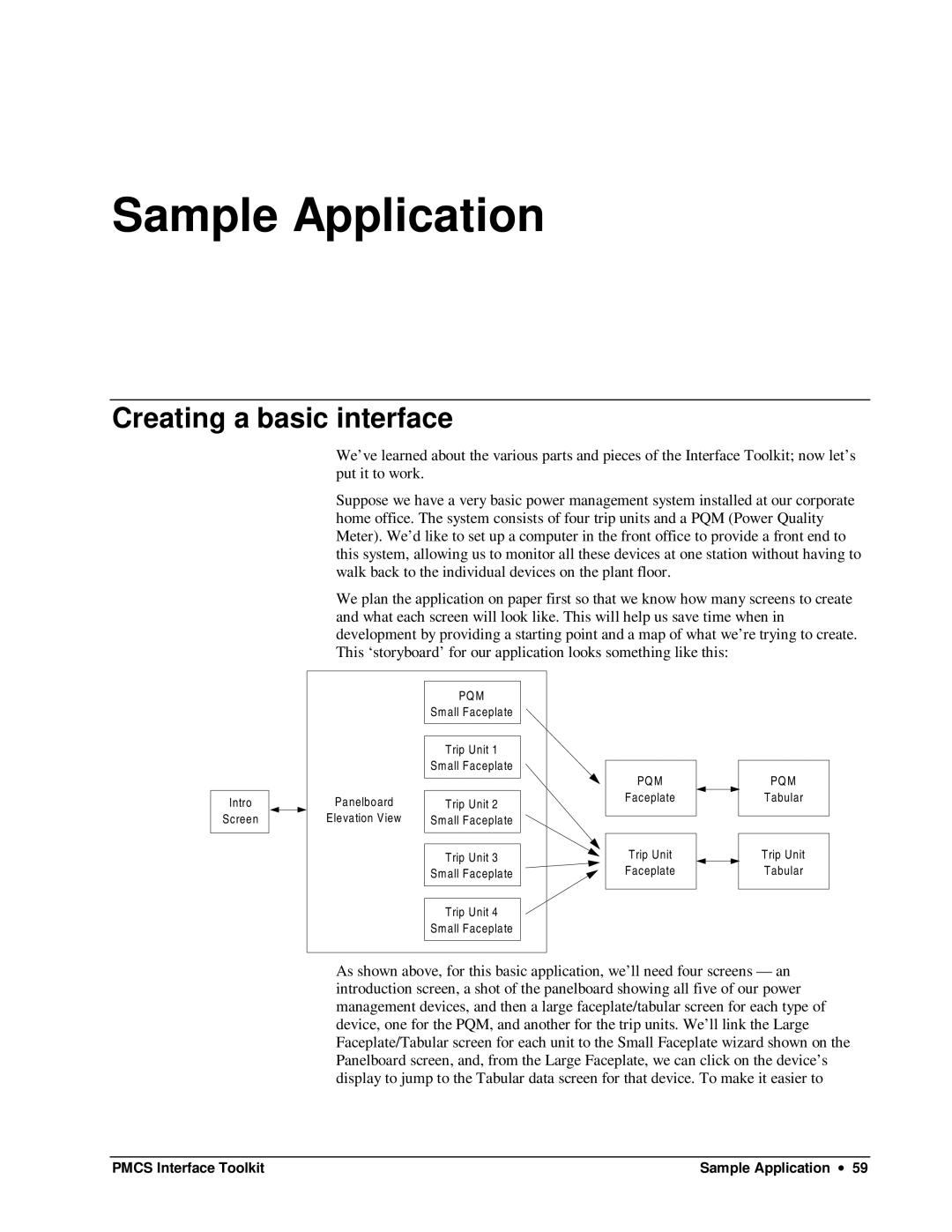
Sample Application
Creating a basic interface
We’ve learned about the various parts and pieces of the Interface Toolkit; now let’s put it to work.
Suppose we have a very basic power management system installed at our corporate home office. The system consists of four trip units and a PQM (Power Quality Meter). We’d like to set up a computer in the front office to provide a front end to this system, allowing us to monitor all these devices at one station without having to walk back to the individual devices on the plant floor.
We plan the application on paper first so that we know how many screens to create and what each screen will look like. This will help us save time when in development by providing a starting point and a map of what we’re trying to create. This ‘storyboard’ for our application looks something like this:
Intro
Scree n
Pa nelbo ard Elevation View
PQ M
Small Faceplate
Trip Unit 1
Small Faceplate
Trip Unit 2
Small Faceplate
Trip Unit 3
Small Faceplate
Trip Unit 4
Small Faceplate
PQ M
Faceplate
Trip Unit Faceplate
PQ M
Tabular
Trip Unit Tabular
As shown above, for this basic application, we’ll need four screens — an introduction screen, a shot of the panelboard showing all five of our power management devices, and then a large faceplate/tabular screen for each type of device, one for the PQM, and another for the trip units. We’ll link the Large Faceplate/Tabular screen for each unit to the Small Faceplate wizard shown on the Panelboard screen, and, from the Large Faceplate, we can click on the device’s display to jump to the Tabular data screen for that device. To make it easier to
PMCS Interface Toolkit | Sample Application ∙ 59 |
